
A laptop is a necessity for Canadian college and university students, so you want to choose the right one that will enhance your academic performance and personal convenience. This guide will help students navigate the vast selection of laptops available for university and college use.
Understanding the basic specifications
The most important components that affects most peoples laptop decisions are the operating system (Apple, Windows, or Chromebook), the speed of the processor, the amount of memory, and special features that will benefit a particular scholastic program. Our Laptop Buying Guide goes into these features in detail. Here a quick summary:
- Operating system: For some people the search for a new laptop begins with the operating system and often the brand. For example, some people only want to choose from the selection of Apple laptops; others may want a Chomebook or a Windows machine. The major differentiator of these is the type of operating system they use: Apple’s MacOS, Google ChromeOS, or Microsoft Windows. Compare the differences in this helpful article on the blog.
- Processor: The processor, or CPU, is the heart of your laptop, influencing the speed and performance of your system. Intel’s Core i5 or Ryzen 5 from AMD are good starting points for most students.
- RAM: Random Access Memory (RAM) allows your laptop to run several applications smoothly at the same time. Laptops for college students should ideally have a minimum of 8GB RAM. RAM is one component that people can increase fairly easily in many laptops if needed as the student needs to later on in their career.
- Storage: An SSD (Solid State Drive) performs faster and more reliably than a traditional HDD (Hard Disk Drive). Students should consider laptops with at least 256GB of storage to keep their documents, assignments, and multimedia files.
- Graphics Card: If your major doesn’t involve graphic design, video editing, or gaming then a laptop with an integrated graphics card should be sufficient.
- Battery life: aim for 6 to 8 hours of expected battery life. Of course, the battery will drain faster with more demanding tasks. However, you may find some classes don’t have power outlets nearby so be prepared to operate exclusively on battery power for periods of your day.
Best Buy’s laptop section has links at the top for types of laptops and major brands to make it easier for you to quickly see the ones that interest you the most. Also, on the left side of the laptop pages you can refine the selection by features like processor type or memory.

Considering your major
The laptop you choose for university or college should align with your field of study. Most undergraduates in the arts and sciences will be fine with almost any laptop available at Best Buy. Different majors may have specific laptop requirements due to the varying software and applications that students need to use. Here’s how the requirements may differ:
Laptops for graphic design students: Graphic designers need laptops that support complex design software like Adobe Creative Suite. They require high-resolution displays for precise work, advanced graphic cards for rendering, and ample storage. Apple MacBooks with their Retina Display powerful processors, or high-end Windows laptops with dedicated graphics cards could be a good fit.
Laptops for architecture students: Architectural software such as AutoCAD and Revit require powerful processors, ample RAM, and dedicated graphics cards for 3D modelling and rendering. Consider high-performance laptops from like gaming laptops, which include the most powerful laptops available.
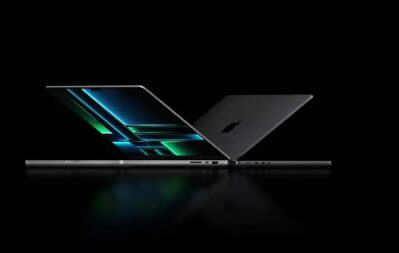
Laptops for computer programming and engineering students: Majors in these fields might need laptops with fast processors, plenty of RAM for coding, compiling, and testing programs, and large SSDs. High-performance Windows laptops or Apple’s MacBook Pro line are often popular choices.
Laptops for video production students: Video editing software like Adobe Premiere Pro and Final Cut Pro require powerful processors, high RAM, ample fast storage, and a dedicated graphics card. Some programs will recommend the minimum requirements necessary in you laptop. Students do not want to arrive with a computer that is too slow to run the programs they will need to get their work done.
Laptops for sound production students: Music or sound production students who use software like Ableton Live or Pro Tools need a fast processor, a good amount of RAM, and a solid state drive for faster access to large sound libraries. Also, a high-quality sound card is essential for accurate audio work. Some models from the Dell XPS and MacBook Pro ranges are often favored for these tasks.
Laptops for business students: Business students typically use software like Microsoft Office, project management tools, or business analytics software. A laptop with a reliable processor, a good amount of RAM (8GB or more), and solid battery life would suffice for these tasks. Business students might also benefit from a lightweight and portable laptop, as they often need to carry it for presentations or group projects. The Lenovo ThinkPad series or Dell XPS line could be suitable choices for business students.
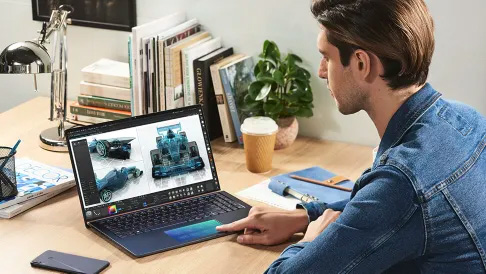
Laptops for marketing students: College and University students that study marketing might be working with a variety of software, from graphic design programs for creating promotional materials to analytics tools for market research. As such, they would benefit from a versatile laptop with a good processor, a reasonable amount of RAM (at least 8GB), and a high-quality display for design work. Depending on their specific focus within marketing, they might also need a laptop with a dedicated graphics card. The Microsoft Surface Laptop or the Apple MacBook Air could be good options for marketing students.
Laptops for science majors: Students in the sciences might need laptops that can handle data analysis software, simulation programs, or technical computing. A robust processor, a good amount of RAM (at least 8GB), and ample storage would be beneficial. Depending on the specific scientific field, a laptop with a dedicated graphics card may also be helpful for running complex simulations or data visualization. The Asus Zenbook or HP Pavilion ranges offer models that can meet these requirements.
As always, consider the specific software you’ll be using in your coursework, and check the recommended system requirements on the software manufacturer’s website. This will help ensure you choose a laptop that will serve you well throughout your studies.
Laptop size and weight considerations for the busy student
Portability is essential for college and university students whether they are living on or off campus. You’ll likely be taking your laptop to every class, to study sessions with fellow students, to and from home, etc. It will be with you every day—size and weight can be a very important consideration. Most laptops for university students range between 13 and 15 inches in size, and can weigh as light as a kilogram or, for larger laptops with many added features, more than two kilograms.
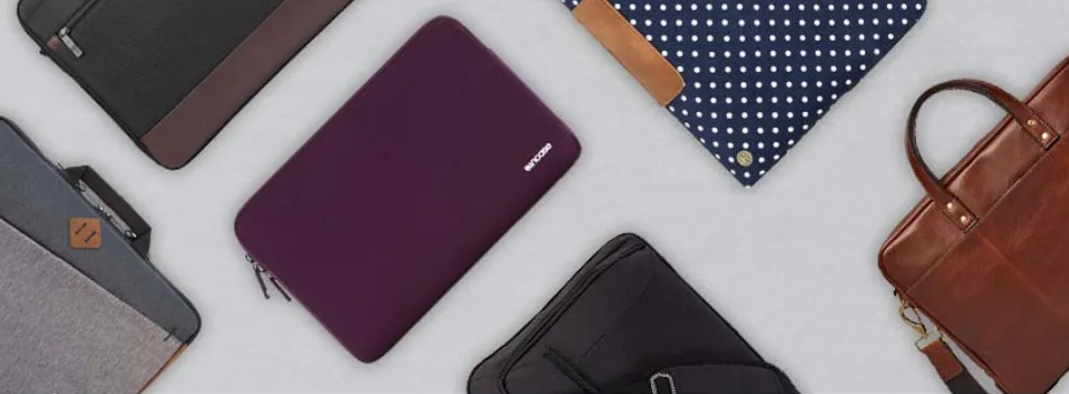
Protecting your laptop with a bag and case
When choosing your laptop, you’ll need to consider not only its size and weight but also how you’ll be transporting it. Both factors will significantly impact your daily routine, as you’ll likely be carrying your laptop to classes, study sessions, and group meetings.
Laptop bags and cases offer a more formal look and typically have special compartments designed to protect your laptop. They are ideal for business students who might be attending professional meetings or interviews. Some bags offer a padded compartment for the laptop and extra pockets for notebooks, pens, and other essentials.
Laptop backpacks offer a hands-free option for students who travel longer distances, bike to campus, or have a heavier load to carry. Many backpacks designed for laptops, like laptop bags from Swiss Gear or Herschel, include padded laptop compartments and multiple pockets for better organization. Some even offer features like a USB charging port.
Laptop sleeves are a great way to keep laptops undamaged while running from one class to another. These padded sheaths protect your laptop from scratches and minor bumps and are often much easier to grip than the smooth surface of a laptop, so the student is less likely to drop it.
For those who can’t decide between a laptop bag and a backpack, some models convert between the two. These offer flexibility in how you carry your laptop, adapting to different needs and situations. Most importantly about choosing a bag or case, students should consider factors such as comfort, durability, and weather resistance. If you live in a rainy area, for example, a waterproof or water-resistant bag might be a good investment. Also, make sure the bag or case has enough space for not just your laptop, but also any accessories, notebooks, or textbooks you’ll need to carry.
Budget considerations when purchasing a laptop for school
Most students will want their laptop to last for the entire duration of their program, which can be four years for an undergraduate degree and longer if graduate school is a consideration. Many students will want to future proof their purchase by spending a little more for a faster processor, or additional memory so their machine does not have to be replaced for a faster model in a few years.
A laptop’s warranty is also important. While all laptops come with a manufacturer’s warranty that typically covers hardware defects for a year, students might want to consider extended warranty options for extra protection. The Best Buy Geek Squad Protection Plan, for example, covers accidents like drops and spills, which are not usually covered by standard warranties.
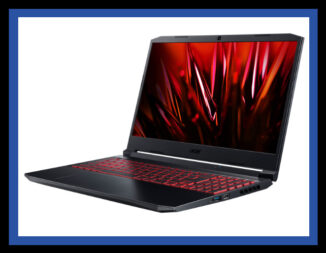
The right laptop can make a significant difference in your academic success and overall university or college experience. From considering your major and your laptop’s operating system to evaluating battery life and durability, there are several factors to keep in mind when searching for the perfect tech companion. Whether you need a high-powered machine for graphic design, a versatile laptop for business studies, or a lightweight and long-lasting laptop for liberal arts, the choice depends on your specific needs and preferences. And remember, even after purchasing, taking care of your laptop by using protective gear and maintaining battery health can prolong its lifespan and increase its efficiency. So, explore, compare, and choose wisely from the range of laptops for university and college students available at Best Buy. Happy shopping, and here’s to a successful academic year ahead!
This article was drafted using AI technology and then reviewed, fact-checked, and revised by a member of our editorial team.



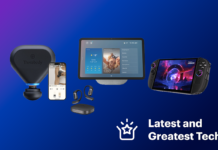

Excellent article!
Thank you! We appreciate your comment.
Comments are closed.